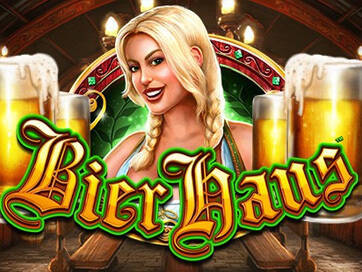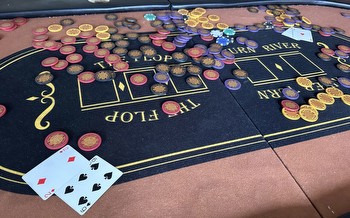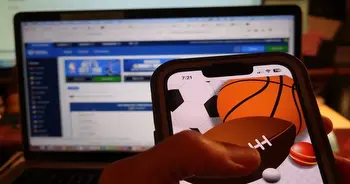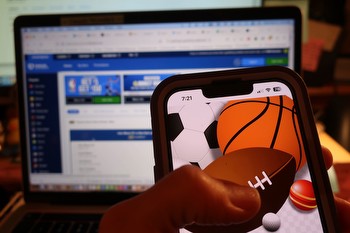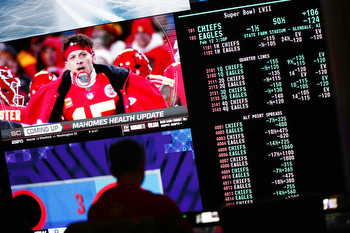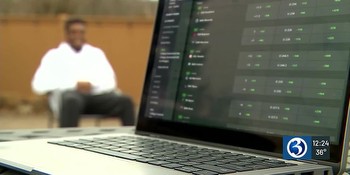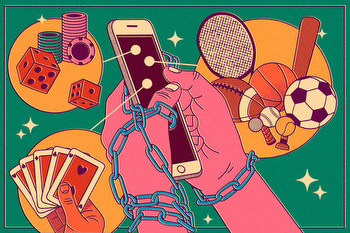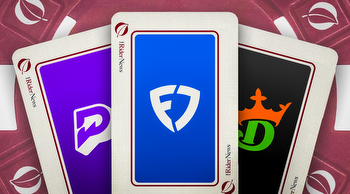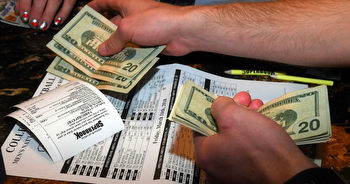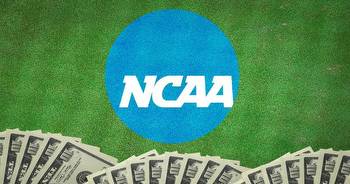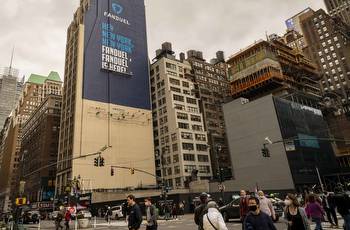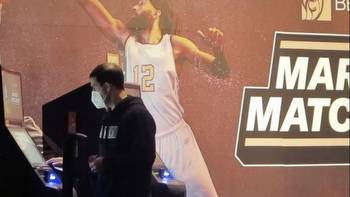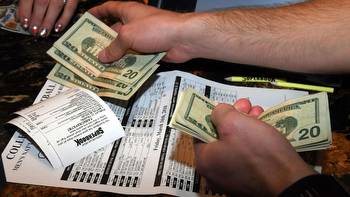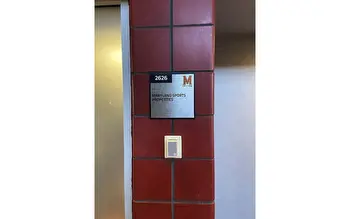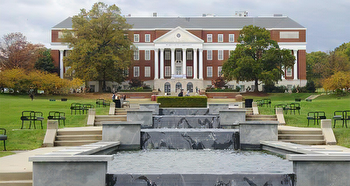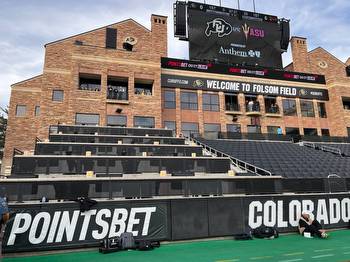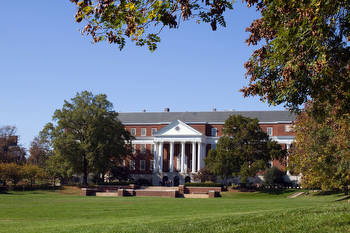Sportsbooks cashing in big on younger audiences across Florida
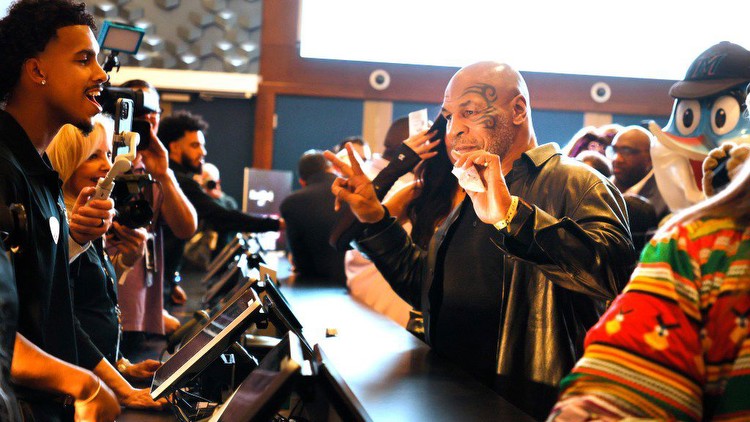
Nicotine and alcohol are the current kings of addiction on college campuses, but there may soon be a challenger to the throne. The multibillion-dollar industry of sports betting has been grabbing the attention of college students at an alarming rate — creating one of the trendiest compulsions among young adults.
Wagering is pervasive among 18- to 22-year-olds, a survey conducted by the NCAA revealed, with 58% having engaged in at least one sports betting activity. This past year, the entertainment conglomerate, Hard Rock, opened sportsbooks, a place where sports bettors can place wagers, in all three of their South Florida casinos, including their Hollywood location, just a 30-minute drive from the University of Miami and Florida Atlantic University.
At the moment, Florida residents can’t throw their life savings on FAU’s basketball team at brick-and-mortar casinos, like the Hard Rock, or Calder Casino in Miami Gardens. But that doesn’t stop South Florida students from risking their paychecks on a weekly basis. And since online sports betting recently cleared legal hurdles, it’s easier than ever for young Floridians to squander their weekly allowance on a game.
With an assortment of illegal online sportsbooks, there are plenty of ways for students to get their gambling fix.
“It’s a great form of entertainment,” said Jacob, a junior business student at Florida Atlantic University, who declined to share his last name. Jacob has been hooked on sports betting after cashing a $375 wager on one lucky NFL Sunday. His favorite online betting platform, PrizePicks, allows anyone over the age of 19 in Florida to bet on their favorite athlete’s performances — although it isn’t entirely legitimate.
“[PrizePicks] is up and running, but it’s running illegally,” said Bob Jarvis, gambling law expert and professor of law at Nova Southeastern University in Fort Lauderdale. “The new Florida gaming control committee has recently started to send out cease-and-desist letters telling these entities what they’re doing is illegal.”
Jarvis said popular sports betting apps like PrizePicks, Underdog Fantasy and Betr rely on a loophole to keep their platforms alive. Classified in a category labeled Daily Fantasy Sports, they claim that they are not engaged in gambling, but engaged in a game of skill.
Because of this loophole, twenty-somethings like Jacob can wager hundreds of dollars a week from their dorms, and some may be unaware that they are breaking the law by gambling in the state of Florida. “I sometimes just do it out of boredom,” Jacob said as he chuckles. “It kind of makes me feel like a degenerate… but I’ve been watching sports my whole life, and this makes it a lot more fun.”
The rush he gets when placing a bet — along with the high he gets when one hits — constantly draws Jacob back. “It’s an addictive feeling,” he said. “It seems like everybody is doing it right now … you see and hear about it everywhere.”
Jarvis believes one of the main reasons why so many young adults gamble on sports is because sportsbooks are aggressively marketing to U.S. college students. “Every sports betting enterprise wants to get into the college market because those are their future customers, and they want to get them as soon as possible,” said Jarvis.
He explained that sportsbooks are mainly doing three things to attract a younger audience: Partnering with universities to advertise throughout campus, advertising within the athletic venues of colleges, and directly mailing students — trying to entice them with promotions such as “free bets” or “deposit matches.”
Evidence of these marketing tactics can be found across the country. Colleges have inked deals with giants in the gambling industry, like when Michigan State University briefly named Caesars Sportsbook as their “Official and Exclusive Sports Betting Partner” in January 2022 — an almost $9 million deal that was later disbanded four years shorter than its intended length, when MSU decided it could be perceived negatively by the public.
These marketing tactics appear to be working, as the NCAA’s survey found that 63% of on-campus students recall seeing betting ads, and 58% of those students indicate they are more likely to bet after seeing the ads.
“You want to get customers at a time when they haven’t yet made a decision,” said Jarvis, explaining why university partnerships are so crucial to sportsbooks. “It’s much easier to hold onto a customer than convert one.”
In a March 2023 statement released by Jennifer Kruse, executive director of the Florida Council on Compulsive Gambling, the council revealed statistics about the number of gamblers ages 25 or younger who had contacted their gambling helpline. In the 2021-2022 fiscal year, the Council saw a 55% increase compared to 2019-2020 in gamblers under 25 seeking help.
These numbers could rise once Florida sportsbooks are fully up and running. The Hard Rock Bet platform took the first steps, relaunching a version of its Florida online sports betting app in November as the only legal online sportsbook in Florida.
With the legalization and growth of sports betting, the opportunity for students to gamble is increasing, causing concern.
“This is not something colleges are ready for; there isn’t enough being done to warn students about the dangers of gambling,” Jarvis said. “This is going to become an epidemic across campuses … gambling isn’t going to go away.”
Charles Maxwell writes for the MediaLab@FAU. For more information about our stories or partnering with us, email Ilene Prusher, Digital Director of MediaLab@FAU, at [email protected]
